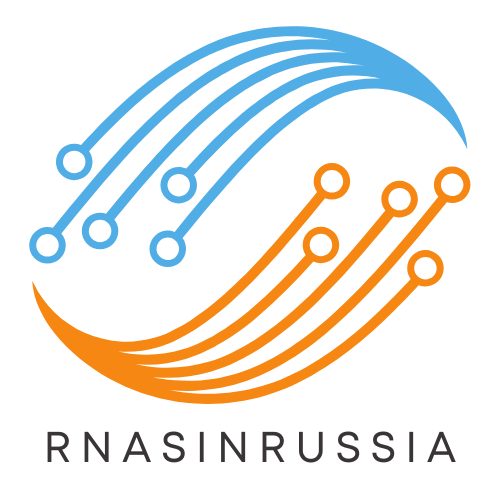Table of Contents
ToggleIn today’s digital age, coding has become an essential skill that opens doors to countless opportunities. Whether it’s building websites, developing apps, or automating tasks, understanding the basics of coding can empower anyone to bring their ideas to life. For beginners, diving into the world of programming might seem daunting, but it’s more accessible than ever.
With a plethora of resources available, aspiring coders can find the right path tailored to their interests. From interactive online courses to engaging tutorials, learning to code is not just about writing lines of text; it’s about problem-solving and creativity. This article will guide newcomers through the foundational concepts of coding, making it easier to embark on their programming journey.
What Is Coding for Beginners?
Coding for beginners refers to the basic principles and practices of programming, designed to introduce novices to the fundamentals of writing instructions for computers to execute. Coding encompasses several programming languages, including Python, JavaScript, and HTML, each serving various purposes in web development, software creation, and data analysis.
Beginners engage in coding to learn how to structure algorithms, utilize control statements, and implement functions. Each element plays a crucial role in problem-solving and enhancing logical thinking skills. As they progress, beginners often develop creativity through coding projects, creating applications, websites, and automating tasks.
In addition to technical skills, coding fosters analytical abilities. Beginners learn to break down problems into manageable steps, enhancing their approach to technology and its applications in real-world scenarios. Accessible resources such as online courses, coding boot camps, and community forums support learners in this journey, making coding an achievable skill for anyone eager to enter the programming field.
Benefits of Learning Coding

Learning coding offers numerous advantages in today’s technology-driven society. Individuals gain access to diversified career paths and develop vital problem-solving skills through coding education.
Career Opportunities
Coding opens up a wide array of career opportunities across various industries. Professionals can pursue roles such as web developers, software engineers, data analysts, and game developers. The demand for coding skills remains high, with industries such as finance, healthcare, and education seeking individuals proficient in programming languages like Python, JavaScript, and C++. According to the U.S. Bureau of Labor Statistics, the employment of software developers is projected to grow by 22% from 2020 to 2030, significantly faster than the average for all occupations. This rapid growth illustrates the increasing reliance on technology in every sector.
Problem-Solving Skills
Coding enhances problem-solving skills by encouraging logical thinking and systematic approaches to challenges. Individuals learn to analyze complex problems, break them down into smaller components, and devise efficient solutions through coding exercises and projects. This skill set transcends programming, benefiting areas such as project management and critical thinking in everyday tasks. Studies show that individuals with strong problem-solving abilities tend to perform better in collaborative environments. By mastering coding concepts, learners improve their ability to tackle challenges in both personal and professional contexts.
Best Programming Languages for Beginners
Choosing the right programming language significantly eases the learning journey for beginners. Each language possesses unique features catering to different interests and goals.
Python
Python stands out as one of the most beginner-friendly programming languages. Its clear syntax mimics natural language, making it easier for novices to read and write code. Python offers an extensive library of modules, enabling users to accomplish tasks without starting from scratch. Beginners often use Python for web development, data analysis, artificial intelligence, and automation. Resources such as online courses and interactive tutorials facilitate a smooth learning experience. According to the TIOBE Index, Python consistently ranks among the top programming languages, reflecting its popularity and community support.
JavaScript
JavaScript is essential for anyone interested in web development. As the backbone of dynamic websites, JavaScript enables users to create interactive components, enhancing user experience. Its compatibility with HTML and CSS allows easy integration into web projects. Beginners find JavaScript helpful for building simple web applications and games. With a wealth of online tutorials and documentation, mastering JavaScript becomes more accessible. The language’s versatility extends beyond browsers, as it supports server-side programming through frameworks like Node.js, further broadening career opportunities.
Scratch
Scratch introduces coding through a visually engaging platform ideal for younger learners. Developed by MIT, Scratch employs a block-based interface, making it simple to build programs by snapping together code pieces. This hands-on approach allows users to focus on logical thinking and problem-solving rather than syntax. Many educational institutions utilize Scratch to teach foundational concepts in programming, game design, and animations. By fostering creativity, Scratch encourages beginners to share their projects with a supportive community and explore programming in a fun and interactive manner.
Resources for Learning Coding
Numerous resources exist for beginners eager to learn coding. These options include online courses and books that cater to various learning styles and preferences.
Online Courses
Several platforms offer structured online courses that cater to beginners in coding.
- Codecademy: Provides interactive coding lessons across languages like Python and JavaScript.
- Coursera: Features courses from universities such as Stanford and MIT, covering fundamentals and specific languages.
- edX: Offers free courses from institutions like Harvard, where learners can access both introductory and advanced coding topics.
- Udacity: Provides nanodegree programs that guide users through practical projects in coding and web development.
- Khan Academy: Presents free, educational videos and exercises for beginners focused on coding fundamentals.
Books and eBooks
Books and eBooks serve as valuable learning tools for those who prefer traditional studying methods.
- “Python Crash Course” by Eric Matthes: This book offers a hands-on introduction to Python, focusing on practical projects.
- “Eloquent JavaScript” by Marijn Haverbeke: This book covers JavaScript with an emphasis on writing effective code and understanding programming concepts.
- “Automate the Boring Stuff with Python” by Al Sweigart: Ideal for beginners, this book teaches Python through practical examples and real-world applications.
- “HTML & CSS: Design and Build Websites” by Jon Duckett: This visual guide introduces HTML and CSS, targeting those interested in web development.
- Online resources like Project Gutenberg and Google Books: Provide free access to a variety of coding-related literature for additional learning.
These resources collectively support beginners in gaining foundational skills and confidence in coding.
Tips for Success in Coding
- Practice Regularly: Coding transforms from theory to skill through consistent practice. Set aside time daily or weekly to code, even if it’s just for a short period. Regular engagement reinforces concepts.
- Break Down Problems: Complex coding tasks can overwhelm beginners. Simplifying problems into smaller, manageable parts makes it easier to tackle them effectively. Approach coding challenges step-by-step.
- Utilize Resources: Many accessible resources exist, from online courses to coding forums. Engage with platforms like Stack Overflow or Reddit for support and additional insights. Read documentation and tutorials to deepen understanding.
- Experiment with Code: Experimentation enhances learning. Modify existing code or create simple projects to explore new concepts. Challenges presented by errors offer essential learning opportunities.
- Collaborate with Others: Joining coding groups or forums allows beginners to share knowledge and experiences. Learning from peers accelerates skill acquisition and builds a supportive network.
- Stay Updated: The coding landscape evolves rapidly. Follow industry news and trends to remain informed about new technologies and best practices. Subscribe to blogs, podcasts, or YouTube channels focused on coding.
- Set Goals: Establish clear, achievable goals to maintain motivation. Track progress and celebrate accomplishments, no matter how small. Goals can include completing a project or learning a new programming language.
- Cultivate a Growth Mindset: Embrace challenges and learn from failures. Coding requires perseverance; viewing setbacks as part of the learning process fosters resilience. A growth mindset contributes to long-term success.
Embracing coding opens up a world of possibilities for beginners. The skills gained not only enhance technical abilities but also foster creativity and analytical thinking. With the right resources and a commitment to practice, anyone can navigate the coding landscape confidently.
The journey may seem daunting at first, but the rewards are significant. From career opportunities to personal growth, coding can transform how individuals approach problems and develop solutions. As they embark on this exciting path, beginners should remember that persistence and curiosity are key to mastering this invaluable skill.





